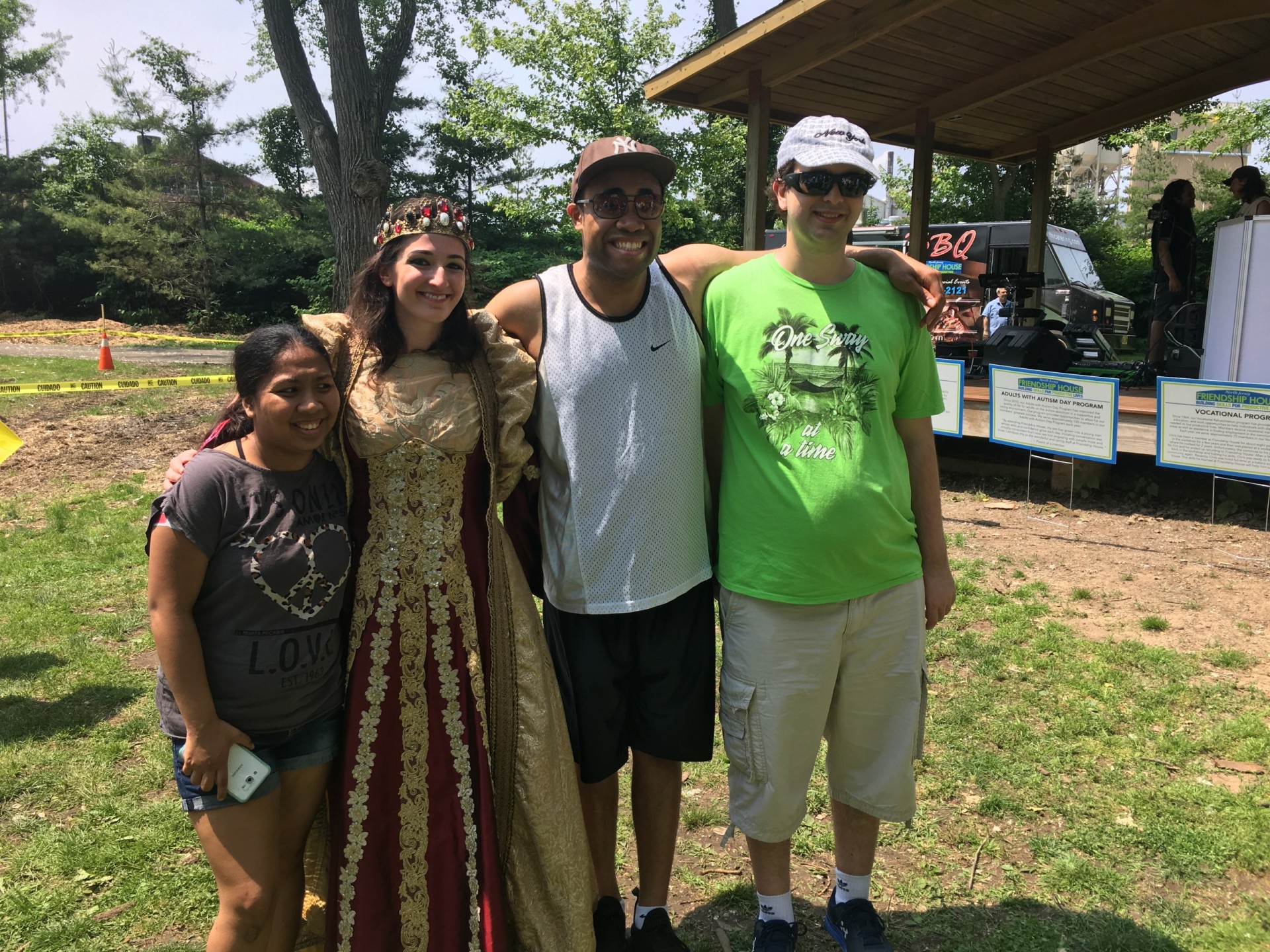
Day Habilitation
Our Day Habilitation program utilizes positive, proven, research-based best practices to help each individual reach their highest potential.
Our program emphasizes:
- Individualized Program Plans
- Individual growth and personal achievement
- Measurable goals for social, activities of daily living, prevocational and vocational progress
- Family consultations and involvement
- Highly structured life skill and community – based groups
- Opportunities to strengthen independent abilities
- Challenging behaviors will be addressed using the principals of Applied Behavior Analysis. This approach includes teaching members in a safe, positive and respectful manner how to develop appropriate alternative behaviors.
Day Habilitation Services Program Highlights
Family Involvement
Since our members’ success also depends on transferring learned skills to the community and their home environment, communication with their family is essential. We encourage annual meetings to be held at program to review and discuss progress towards goals and objectives and to modify plans as necessary. We encourage open communication with families throughout the year to ensure we are all working towards the same outcome. Additional meetings can be initiated by the FH team, or the family as needed.
Activities
- Community Activities – Our members engage in various community-based activities throughout the week. This allows them the opportunity to become familiar with their local neighborhoods and learn the necessary skills to feel comfortable and safe while in the community. Each member is also assigned a community trip day. This includes a community activity in the morning followed by going out to lunch with their peers. While our members have fun on these outings, we are working on skills learned in program such as positive transitioning, community safety, money management, healthy decision making and more.
- Recreational & Leisure Activities – In effort to broaden our member’ interest, we expose them to a variety of recreational and leisure time activities such as exercise routines, golfing, art, music, Zumba, reading, group and individual social activities, and more, both in program and in the community.
Training Emphasis
- Life Skills – Our members are presented with a wide array of skill-building opportunities which foster individual independence through educational, social and vocational opportunities in program and in the community. We offer activities for the promotion of a member’s self-esteem, and overall well-being in a supportive and caring environment. We accomplish this through small group teaching that focuses on individual needs and preferences. Sample of types of life skill groups include but are not limited to: social skills; communication: boundaries; emotion regulation; self-advocacy; decision making; personal self-care; cooking; money management; community purchasing; community safety; exercise; likes and dislikes; wants or needs; current events; cultural awareness; future planning; community volunteer opportunities and more. We offer graphic arts/design groups where those interested can learn to become proficient in Photoshop, InDesign and Illustrator.
- Prevocational – We provide learning and volunteer work, where the member develops a general, non-job-task-specific strengths and skills that contribute to future employability in an integrated community setting. Services may include training in effective communication with supervisors, co-workers and customers; generally accepted community workplace conduct, tolerance and dress; ability to follow directions; ability to attend to tasks; workplace problem solving skills and strategies; and general workplace safety and mobility training. Prevocational Training is intended to be a service that members receive with specific outcomes to be achieved that will help a member prepare for securing competitive, integrated employment in the community.
- Social Skills – During Social Skills groups, members have the opportunity to practice interacting with a group of their peers in a structured, goal-oriented way. We use video modeling, games, improvisation, and role playing to work on skills such as reading social cues, body language, listening, asking questions, topic maintenance, etc. The skills taught during groups are then practiced throughout the day.
For additional information please contact:
Mala Spivack
Executive Director of Day & Community Services
Email: mspivack@njfriendshiphouse.org
Phone: 201-881-0411 ext. 11
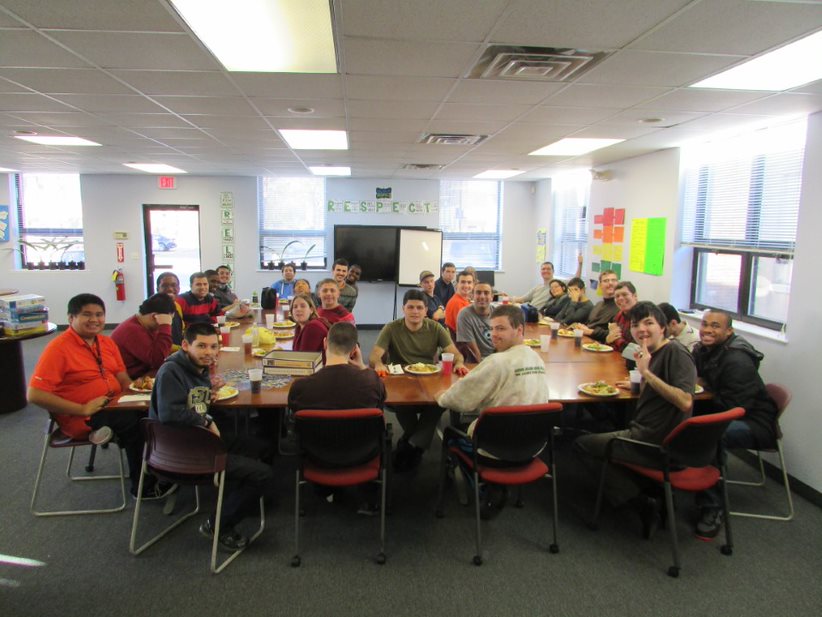
Members at one of our program locations

At Olsen Park in Bogota at the annual Fun Day and Walk
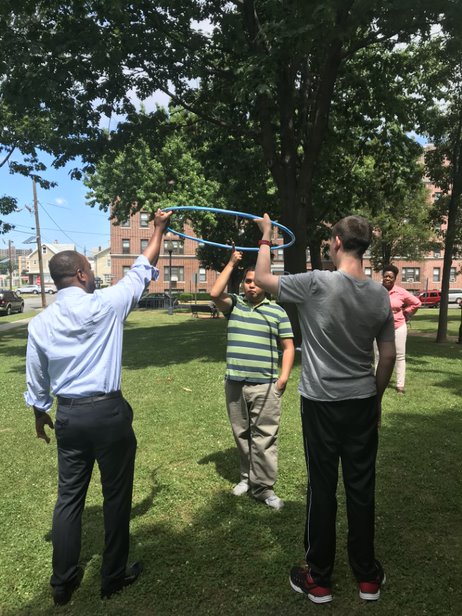
Members in a group activity practicing collaboration
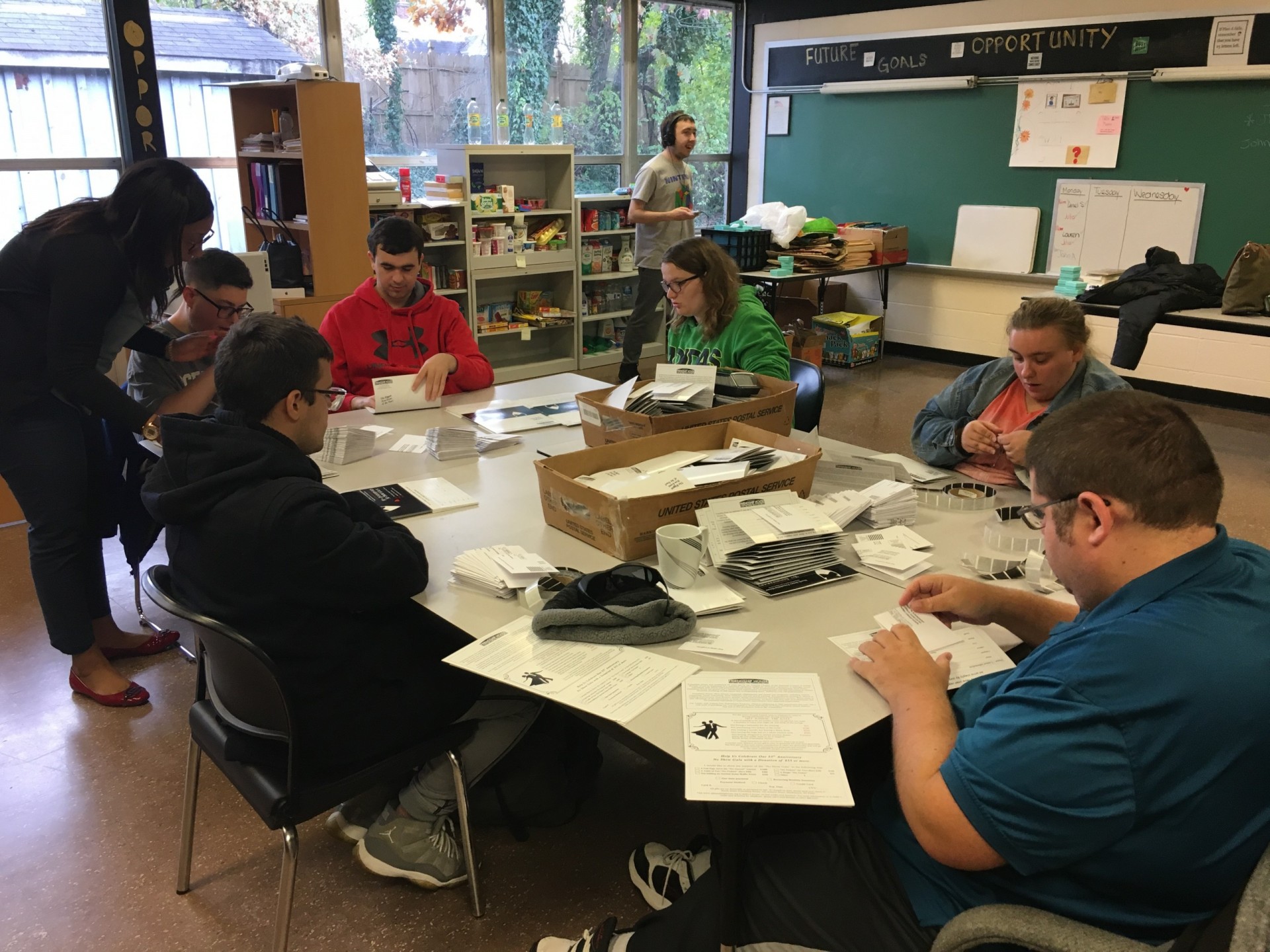
Members at the Opportunities Center help prepare our event mailers
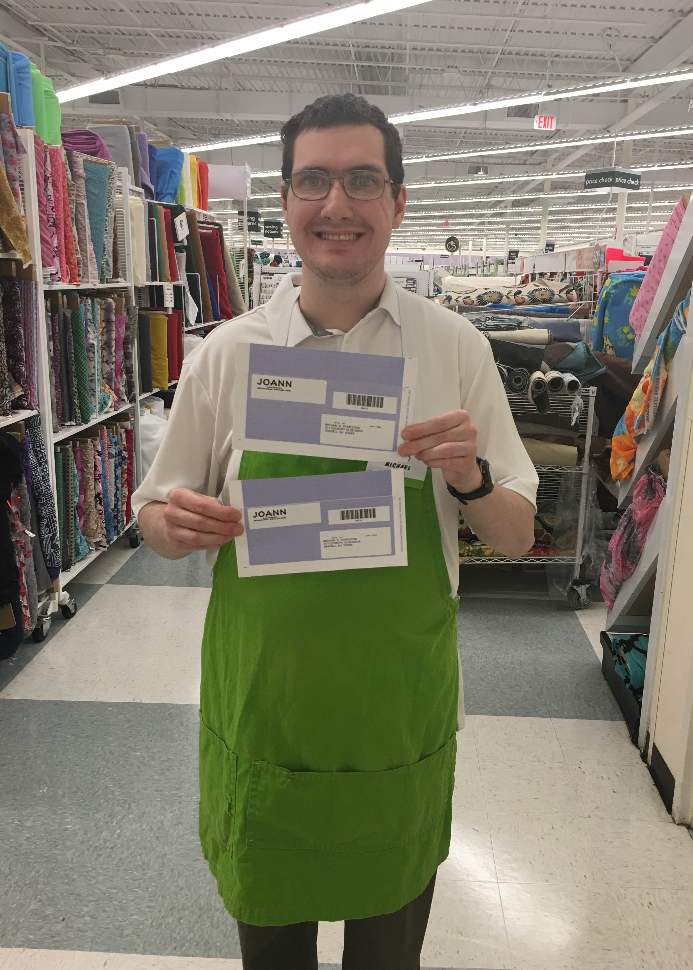
Member proudly displaying his first two paychecks!
